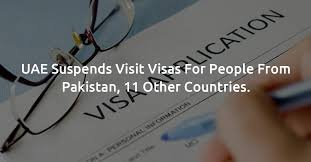World
“Republic will destroy terrorists”: Hollande

Paris: “The terrorists will never destroy the republic, because the republic will destroy them,” French President Francois Hollande said in a speech addressed to the two chambers of parliament.
“The acts committed on Friday night were acts of war. They left at least 129 people dead and many others injured,” Xinhua quoted Hollande as saying on Monday.
“We are in a war against jihadi terrorism which threatens the whole world,” he said in reference to the attacks in Paris which included simultaneous shootings, explosions at six places.
Following the air strikes carried out by the military on Sunday in Raqqa, Syria, Hollande announced that France would intensify its operations in Syria.
“We will continue the strikes in the coming weeks,” he said, adding that the aircraft carrier Charles de Gaulle would be deployed to the eastern Mediterranean which would “triple our capacity of action.”
“There will be no respite, no truce,” stressed a resolute Hollande.
He proposed the security council of the UN to meet as soon as possible to adopt a resolution to destroy Islamic State (IS).
In the meantime, Hollande would meet the US President Barack Obama and Russian President Vladimir Putin to form “one great coalition” facing the terrorists in Syria, he said.
In order to ensure the security of French territory, Hollande said the reductions of army personnel would be suspended till 2019 “for the safety of compatriots”.
He also announced France would create 5,000 more police and gendarmes jobs in the coming two years as a security measure to protect the people leading to a total of 10,000 new posts in the next five years.
Although the new security measures would greatly increase the state budget, Hollande said that security was more important than tending to the budget deficit.
He also expressed his wish to extend the current state of emergency status in the country to three months and invited parliamentarians to vote on the bill by the end of the week.
In his speech, Hollande also called for the solidarity of other EU member countries, noting that “the enemy is not just an enemy of France, it’s also enemy of the Europe.”
He also proposed that EU member states establish “coordinated and systematic controls at the borders,” as well as create a European passenger name record for air passengers to “allow the traceability of the return of jihadists.”
He also pointed out that the Paris attacks were “decided and planned in Syria, organised in Belgium, and perpetrated on our territory with French complicities.”
“We will eradicate terrorism,” he said in the speech.
The office of Paris Prosecutor on Monday said two more attackers have been identified.
The first was a suicide bomber of French national stadium Stade de France, where a Syrian passport was found.
Although “the authenticity of the passport in the name of Ahmed Al-Mohammad, born on September 10, 1990 in Idlib (Syria) remains to be verified”.
The office of Paris Prosecutor found the finger prints of the suicide bomber matched those collected during a check in Greece in October, 2015.
The second bomber of the Bataclan concert hall was identified as Samy Amimour, born on October 15, 1987 in Paris suburbs.
According to the prosecutor’s office, Amimour was known to the anti-terrorist service for having been charged with association with terrorist criminals. An international arrest warrant was issued against him in 2013.
So far, five of the killed attackers, all of whom had returned from Syria, were identified.
French Prime Minister Manuel Valls on Monday warned of possible further attacks on the country’s soil and in the European countries.
“More attacks are being prepared, not just against France but also against other European countries,” Valls said.
Overnight, French police raided the homes of suspected Islamist militants across the country in the wake of the Paris attacks, he added.
As part of a judicial inquiry into Friday’s attacks, police raided 168 houses across the capital, Interior Minister Bernard Cazeneuve said on Monday.
A total of 23 people were arrested and 104 others were put under house arrest over the last two days.
Police also seized 31 weapons, including rocket launchers during the operation, he added.
“Let this be clear to everyone, this is just the beginning, these actions are going to continue,” he told reporters.
One of the landmarks of Paris, the Eiffel Tower, was reopened and lit with the colours of the French flag in tribute to the victims.
World
Lockdowns in China Force Urban Communities to Defy Censorship and Vent Frustration Online

Shanghai’s rich middle class is leading a wave of online dissent over the strict and prolonged lockdowns imposed in various parts of the country. Chinese internet censorship is struggling as patience is wearing thin in many urban centers, coming up with creative forms of online protests.
Social Media Posts Revealing Lockdown Tension in Shanghai
Drawn-out lockdowns are nothing new in China as authorities insist with the nation’s zero-Covid policy since the start of the pandemic. Currently over This time around, however, metropolitan areas like Shanghai are increasingly difficult to keep quiet, given that its more than 25 million residents have seen weeks of total isolation along with food shortages and many other service interruptions.
Dozens of towns and reportedly over 300 million Chinese citizens have been affected by lockdowns of different severity. As expected, urban netizens have been most outspoken over their difficulties by finding creative ways to get around state censorship and bans placed on topics, news comments and spontaneous campaigns.
Shanghai residents have been using mobile proxies and hijacking seemingly unrelated hashtags to talk about healthcare issues, delivery failures and the overall severity of their situation. The “positive energy” that the Chinese government wants to transmit during the recent prolonged series of lockdowns does not come naturally to those counting food supplies and online censors are working hard to filter words, trending topics and undesired social media sharing.
WeChat groups and message threads are under constant monitoring. Posts questioning the zero-Covid approach have been quickly deleted, including by leading Chinese health experts like Dr. Zhong Nanshan. Video footage is soon censored and protests and investigations are quickly made to disappear.
Where this has not worked, officials have exposed banners with warnings and outright threats like “watch your own mouth or face punishment”, while drones have been patrolling the city skies. Yet, if anything, this has led to further tensions and unspoken confrontation with Shanghai’s educated and affluent middle class.
Creative Online Solutions Harnessing Civic Energy
Announcements by Chinese social media that they would be publishing the IP addresses of users who “spread rumors” have not helped either. Tech industry research has shown that much of Asia’s tech-savvy population has a habit of using mobile proxies and other privacy tools, quickly finding workarounds to browse the internet freely and talk to the world about the hottest topics.
The sheer volume of forbidden posts is already a challenge for the very censorship system, experts explain. Unable to track all trending hashtags, state workers overlook topics that speak about the US, Ukraine or other popular news. Linking human rights elsewhere to their situation, Chinese online dissidents establish their informal channels and “hijack” the conversation to share personal or publicly relevant information about the Covid suppression in their town.
Sarcastic and satirical posts still dominate. Others hope to evade the censors by replacing words from famous poems or the national anthem. One thing is certain – social media, when harnessed with the right creativity, has proven its ability to mount pressure on the government in even some of the most strictly controlled tech environments like China.



















